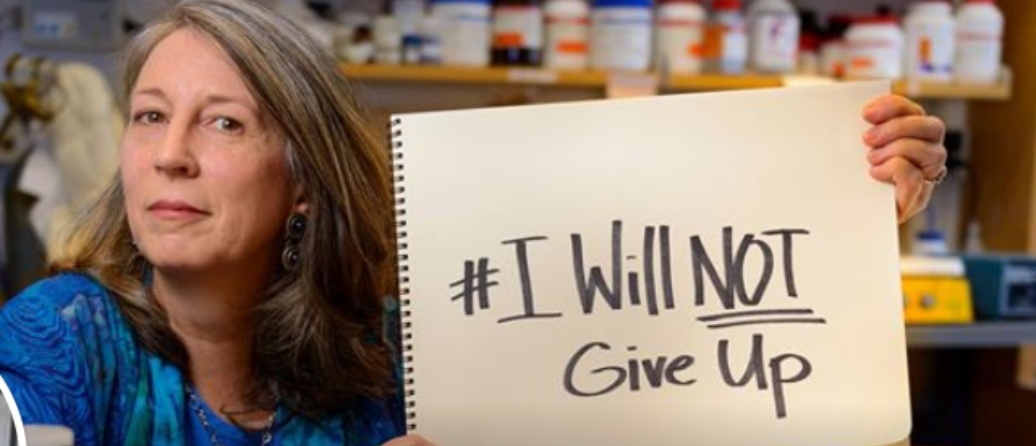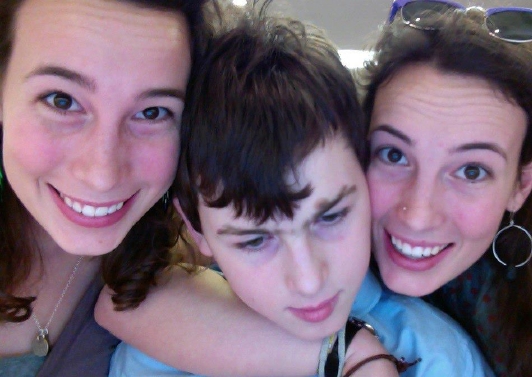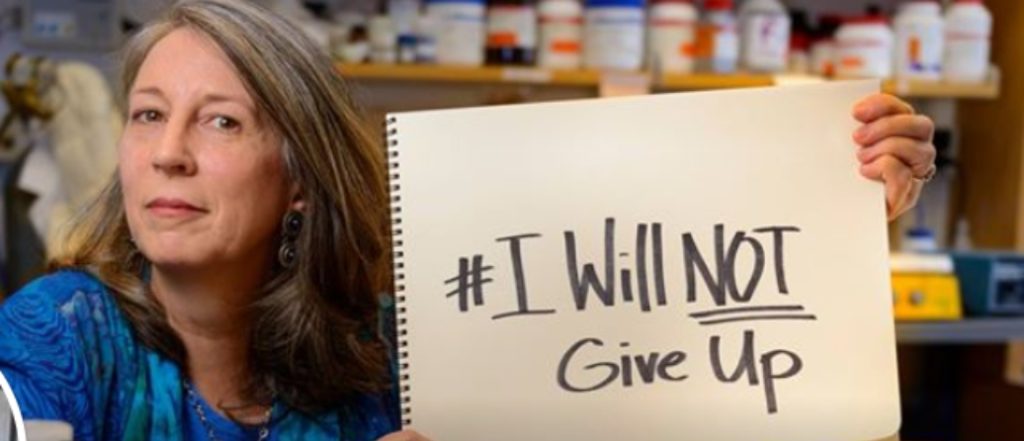
An elusive diagnosis
When her son Louie (Lou) was born, Terry Jo already had four daughters, including a set of identical twins. As a nurse-midwife, she learned while working in Nigeria, where more twins are born than in any other country, that the child born after twins carries big luck. So, she and her husband thought they would try for a boy and were thrilled when he was born. Little did they know their lucky baby had something unlucky lurking in every neuron in his brain.
Lou was a cuddly and adorable baby, but his mother sensed he was different from her other children. When he turned one year old and was still unable to sit up or crawl, a neurologist diagnosed him with cerebral palsy. With a diagnosis that did not seem right, Terry Jo and her husband, Dave, flipped through medical text books, stumbling upon a page about Angelman syndrome (AS). Lou looked a lot like the people in the photos, but it was hard to believe that he was severely cognitively disabled.
The family made an appointment with Dr. Ken Lyons Jones, who happened to be the author of their medical textbook. He looked at cheerful little Lou, who was not meeting his milestones, had a tremulousness about his movements, and he took his tuning fork and placed it on Lou’s knee. Lou laughed hysterically—one of the hallmark symptoms of AS. After a blood test, the diagnosis was confirmed.
People with AS are unable to speak and are dependent on others 24 hours a day. Many have intractable seizures and are unable to sleep. It is an incurable, rare disease, and a devastating diagnosis.

A tireless search for answers
Dissatisfied with the lack of treatment options for AS, Terry Jo and Dave scoured scientific and medical literature written about AS, determined to become experts in UBE3A, the maternal gene that Lou was missing. UBE3A is a ubiquitin ligase, which targets
proteins for destruction in the cellular recycling center. Terry Jo and Dave learned that Lou was missing UBE3A in every neuron in his brain, which meant that Lou would remain unable to speak, unable to sleep, and possibly unable to walk or feed himself for the rest of his life. Feeling helpless, Terry Jo booked a flight for her and Lou to attend the first international AS meeting in Finland.
During her travels, she met Dr. Arthur Beaudet, a geneticist, who had discovered the gene for AS. He firmly believed it to be a curable disorder since AS occurs when there’s a problem on the mother’s chromosome while the paternal gene is perfectly fine, it’s just silenced. Dr. Beaudet believed it possible to unsilence the paternal gene.
With this news, Terry Jo, impatient for any progress in the field, went back to school to get a PhD in neuroscience determined to discover a compound that could unsilence the paternal gene. As she continued to work on as many experiments and studies as she could in graduate school, the field started to get a lot of attention.
Everything for Terry Jo changed when a young scientist at the University of North Carolina, Ben Philpot, completed the experiment that she had hoped to do. He looked at thousands of compounds and found that a cancer drug, topotecan, could unsilence the paternal gene.
Their moment of YES
Dr. Beaudet suggested Terry Jo get in touch with Ionis, who believed the company’s antisense technology could help her achieve the goal of disrupting the defective, or silenced chromosome. Positive about pursuing change for the AS community, Ionis welcomed families, representatives from foundations, and reviewed notebooks full of letters from all over the world expressing a strong desire for a genetic treatment, despite the fact that the greater AS community was still debating whether or not a cure was possible.
Today, Ionis hopes to begin clinical trials in patients in the near future for a treatment thought to help those with AS, instilling new hope for a brighter future.
To this day, Terry Jo believes in the power of information. Because she never stopped seeking answers for Lou, she found Ionis, which may hold the key to a new tomorrow for those with AS.
